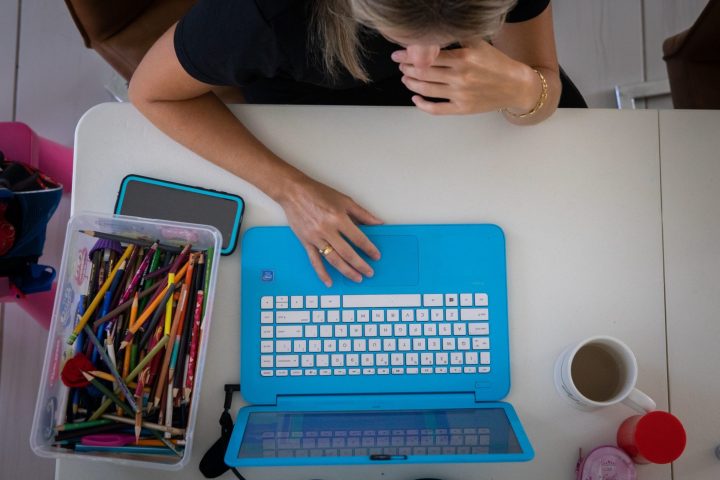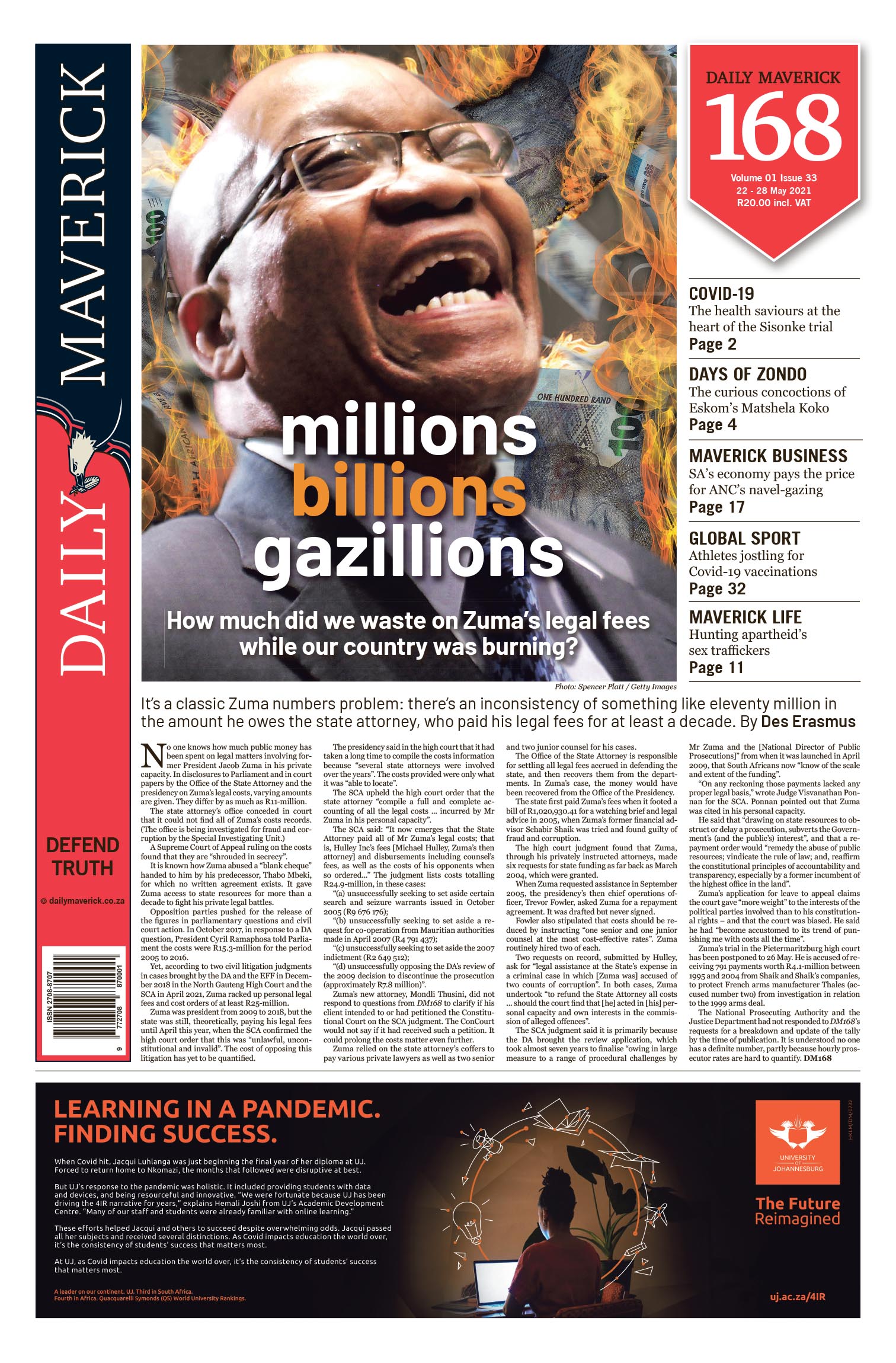BUSINESS MAVERICK 168
The future is increasingly looking remote-ish for South Africa’s large employers

“In future, work is not going to be where you are but what you do,” says Professor Amanda Werner of the Faculty of Business and Economic Sciences at Nelson Mandela University. As the Covid-19 pandemic continues, companies that were forced to switch to mostly working remotely are deciding how to adjust their longer-term policies, usually landing around the middle.
First published in the Daily Maverick 168 weekly newspaper.
James Formby, CEO of Rand Merchant Bank, says the initial rapid shift to fully remote working was easier than he would have imagined because of the flexibility of technology. “It became a way of life almost within a few weeks.” Now the company is working in a blended model between remote and office work that is still somewhat fluid.
RMB has shifted its way of thinking about what being in the office means to employees and their at relationship with the company. “People aren’t coming to the office solely for the purpose of working, they’re coming for the purpose of interaction and connection, so if you give people that licence, actually to say to them, ‘Work less [in] the office but interact more’. It’s quite a powerful message for people to hear.”
Nozicelo Ngcobo, the public affairs, communications and sustainability director of Coca-Cola Beverages South Africa (CCBSA), echoes similar sentiments that “work is not the place you go to, it is the quality outcomes that people deliver”. Thus, staff now work primarily remotely unless their roles require them to be on site, although alternative locations are arranged if needed by remote workers.
“We have found that with more choice and difference in ways of working comes both greater enablement and responsibility,” Ngcobo says. She explains that this has enhanced the work-life balance for staff, and pushed employees towards mature decision-making and self-management.
Yet an employee survey last year also found that staff were needing more social support from the company, in response to which CCBSA implemented various support initiatives to increase engagement, such as team dynamic tools.
For several companies, remote working had already been on the cards. EY developed its current remote working policy before the initial lockdowns. “We have always had the ability for our people to work remotely – the pandemic simply amplified the scale,” says EY Africa CEO Ajen Sita.
EY employees work from home, unless they need or want access to the office, and the company developed an app for staff to manage processes like booking client visits and accessing tech equipment they need.
“Focused work can be done very effectively from home, but we know that ideation, creativity and collaboration will be stronger in spaces created for this,” says Sita.
He says they are also concerned about keeping a strong sense of company culture and have tried to react in an agile way. Some of the adjustments have been increasing sick leave for affected employees and making Friday afternoons meeting-free. The company is also piloting a redesign to some of its physical workspaces to accommodate a more hybrid model.
Celiwe Ross, human capital director at Old Mutual Limited, says the company currently has a flexible approach, in which employees arrange with their line managers if they want to work from home a certain amount. They piloted a variety of approaches to remote working in the company and are still adapting, but found that a split between some roles working partly remotely and others being fully on-site worked best. This will probably continue in the longer term.
Dr Natasha Winkler-Titus, the president of the Society for Industrial & Organisational Psychology of SA and the founder of SigniFYER, says the positives of remote work include flexibility, limited travel time, autonomy of employees and broader reach in terms of location and talent. But there are significant negatives, including “leaders not always skilled in managing virtual workers, HR policies and processes not aligned [with] remote working conditions; team and employee engagement may suffer if not nurtured in this environment”.
Winkler-Titus says there has been a spike in burnout and mental health challenges in employees and “one factor that stands out is the challenges employees have found in ‘switching off’”.
Werner says that although global experiences of this shift during the pandemic are “remarkably similar”, South African organisations face challenges to do with the strength and costs of internet connectivity.
She believes that the future of the workplace will be a blended mix, much like that already implemented by some companies, where offices are used more purposefully for social interaction and collaboration. DM168
This story first appeared in our weekly Daily Maverick 168 newspaper which is available for free to Pick n Pay Smart Shoppers at these Pick n Pay stores.



















 Become an Insider
Become an Insider
Comments - Please login in order to comment.